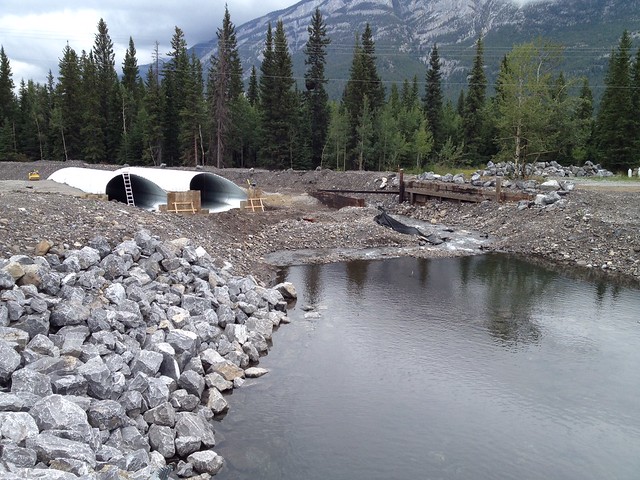This release was issued under a previous government.
The first round of Alberta Community Resilience Program grants will support 21 projects in 16 municipalities to erect flood barriers, upgrade water management infrastructure, construct or expand dry ponds and increase erosion control for vulnerable riverbanks across the province.
“Local water projects provide a critical, additional line of defense against rising flood waters and support ongoing stewardship efforts to mitigate drought effects. Our promise to protect Albertans is supported by this long-term funding commitment to reduce the flood risk faced by our communities across the province.”
Municipalities receiving Alberta Community Resilience Program (ACRP) grants include those most impacted by the 2013 floods – Calgary, MD of Bighorn, MD of Foothills, MD of Pincher Creek, Nanton and High River – as well as those communities that face a significant future flood risk, including Peace River, Manning, Whitecourt, Lethbridge County and the Municipal District of Wood Buffalo.
The City of Calgary has received ACRP grant approvals for four projects: elevated hoists for the Glenmore Dam; lower deck flood barrier improvements for the Centre Street Bridge; a permanent flood barrier along Heritage Drive SE; and flood gates for priority stormwater outfalls.
“Today’s announcement is a welcome step forward in flood mitigation for the people of Calgary. We need a comprehensive approach to both local and upstream flood mitigation measures, and I look forward to our continued partnership to provide the most effective flood mitigation to protect people, property, critical infrastructure, and our economy.”
To help protect Fort McMurray’s lower townsite area, the Regional Municipality of Wood Buffalo has received an ACRP grant for a
6.2 km series of dikes, raised roadways, and floodwalls along the Clearwater and Hangingstone rivers.
“The 2013 floods showed us our vulnerabilities and areas for improvement, just as they did for many regions across the province. Flood mitigation is a priority for the Regional Municipality of Wood Buffalo and we are pleased that the Alberta Community Resilience Program funds will help us in our efforts to bolster critical infrastructure and public safety.”
The City of Edmonton will use its ACRP support to construct two new dry ponds and expand an existing dry pond to protect communities from flooding, increase stormwater mangement, and expand water storage capacity.
“We are pleased to see the Government of Alberta recognizes the importance of investing in Edmonton’s flood prevention efforts. While significant funding is still required, commitments such as this help to build up the resiliency of our city against increasingly intense weather and protect residents from devastating damages.”
The Alberta Community Resilience Program supports the development of long-term resilience to flood and drought events, while supporting integrated planning and healthy, functioning watersheds.
As part of Budget 2015 and the Alberta Government’s 10-year plan, the Alberta Community Resilience Program will provide $500 million in grant support over 10 years to municipalities, special areas, improvement districts, First Nations and Métis Settlements to help ensure public safety and protect critical municipal infrastructure, while supporting integrated planning and healthy, functioning watersheds. The next submissions deadline for ACRP is September 30, 2015.
Projects that did not receive funding in the first round of grant funding will remain on a prioritized list and may be funded at a later date.
Earlier community-level mitigation was funded through the Flood Recovery Erosion Control program (FREC), a program initiated following the 2013 Southern Alberta floods. One hundred and sixty-six grants were approved through FREC for a total of more than $211 million to protect Albertans and their communities.
